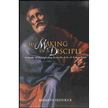What do you do when you see your face in Scripture?
Here is the cartoon that accompanies this post.
James, the brother of Jesus, writes, “Do not merely listen to the word, and so deceive yourselves. Do what it says. Anyone who listens to the word but does not do what it says is like a man who looks at his face in a mirror and, after looking at himself, goes away and immediately forgets what he looks like. But the man who looks intently into the perfect law that gives freedom, and continues to do this, not forgetting what he has heard, but doing it – he will be blessed in what he does.” – James 1:22-25 ’84 NIV
The Greek noun prosōpon (“face”) occurs at least 75 times in the New Testament. (Maybe 76 times, depending on what manuscripts you follow in Matt. 16:3). In 20 of these occurrences, the literal meaning of “face” is present, such as the descriptions of the face of Jesus at His transfiguration (Matt. 17:2; Luke 9:29), and the common practice of praying or bowing with one’s face on the ground (Matt. 17:6; Rev. 7:11; etc.).
Most of the rest of the occurrences use prosōpon to signify someone being physically present or their physical appearance (e.g., Acts 20:25; Acts 20:38; Col. 2:1; [Matt. 16:3] and Luke 12:56; James 1:23). Closely related is the term’s use to convey recognition (1 Cor. 13:12; 2 Cor. 8:24; Gal. 2:11; and perhaps Rev. 22:4). Another related use signifies a person’s arrival (2 Cor. 1:10; 2 Thess. 1:9).
In a handful of passages, the word refers to surface level, as opposed to something deeper (Matt. 22:16; Mark 12:14; Luke 20:21; Luke 21:35; Acts 17:26; 2 Cor. 3:18; 2 Cor. 5:12; 2 Cor. 10:7; and perhaps Rev. 22:4).
This leaves a couple of passages that defy classification. Luke 9:51 says Jesus “set his face” to go to Jerusalem. This means He was determined, unwilling for anyone or anything to swerve Him from His determined course. The Apostle Peter quotes Ps. 34:16 in 1 Peter 3:12: “the face if the Lord is against those who do evil.” ‘Face’ here seems to mean the focus of attention or the attitude.
When James compares a person reading the Scriptures with a man who peers at his face in a mirror, he is using the physical act of seeing your reflection to symbolize the spiritual act of examining your inner being. When you read the Bible, God intends for it to prompt you to take a good hard look at yourself, not just on the surface, as others see you, but deep down.
If you are serious and honest with yourself, this spiritual evaluation will be somewhat of a trial for you, because you will discover flaws, blemishes, “tangled hair”—I should just come out with it: sins, wickedness—that make you look ugly to God, to yourself, and maybe to others as well.
James says when this happens, we should not just walk away and let the memory fade of what we’ve seen; we should do something about it. Turn away from the sin, remove the wickedness, accept God’s forgiveness, and “comb out the tangles.”
Want to go deeper?
Walter Brueggemann – The Word that Redescribes the World: The Bible and Discipleship (2006).
From the publisher: In the last several years, Walter Brueggemann’s writings have directly addressed the situation of Christian communities in today’s globalized context, with its consumerist lifestyles, vast inequalities, and near-imperial exercises of power. His insights, forged in rugged encounters with the texts of the Old Testament, are sharp, painful, and indispensable. In the people Israel, Brueggemann finds a model of an alternative community anchored in YHWH, ever exploring new possibilities, and prophetically bent against empire.
 Kenneth Frederick – The Making of a Disciple: A Study of Discipleship from the Life of Simon Peter. (2001).
Kenneth Frederick – The Making of a Disciple: A Study of Discipleship from the Life of Simon Peter. (2001).
From the publisher: Peter was a man “subject to like passions as we are.” His life is a study in contrasts – resolutely defending the Lord one moment, vehemently denying Him the next. But despite Peter’s inconsistencies, Christ molded him into one of the godliest disciples who ever lived.
This study of discipleship draws relevant truths from the life of Peter to help us understand how to disciple other Christians. Although we will never walk on water, we will all experience the same type of struggles, victories, and “growing pains” in the Christian life. This book offers practical advice on how to disciple fellow brothers and sisters in Christ.
Online resources:
Excerpts from The Cost of Discipleship by Dietrich Bonhoeffer. Written by a modern martyr who walked his talk.
A. B. Bruce – The Training of the Twelve by (first publ. 1871). A classic on discipleship and strongly rooted in Scripture.
Here is the cartoon that accompanies this post.


